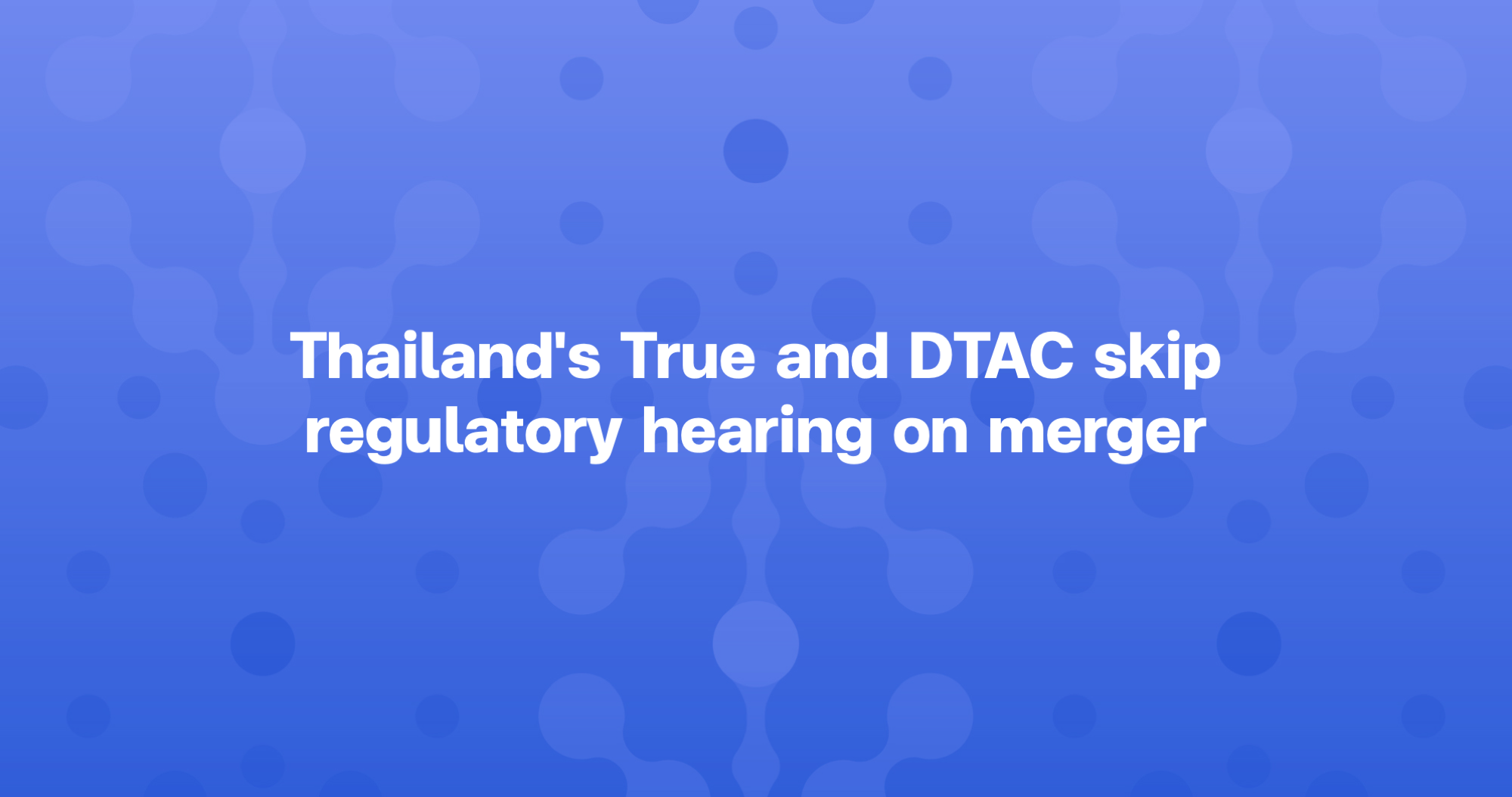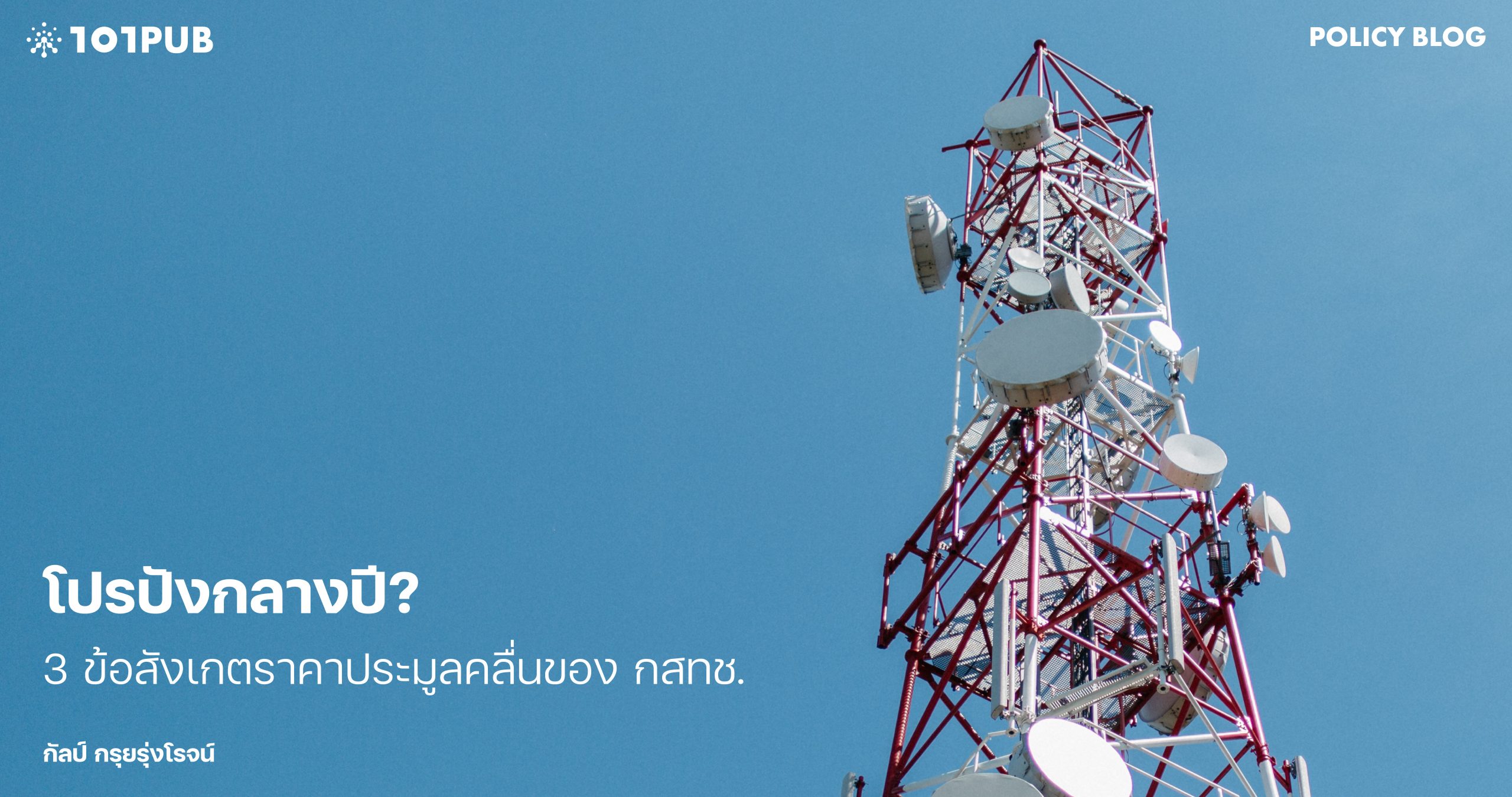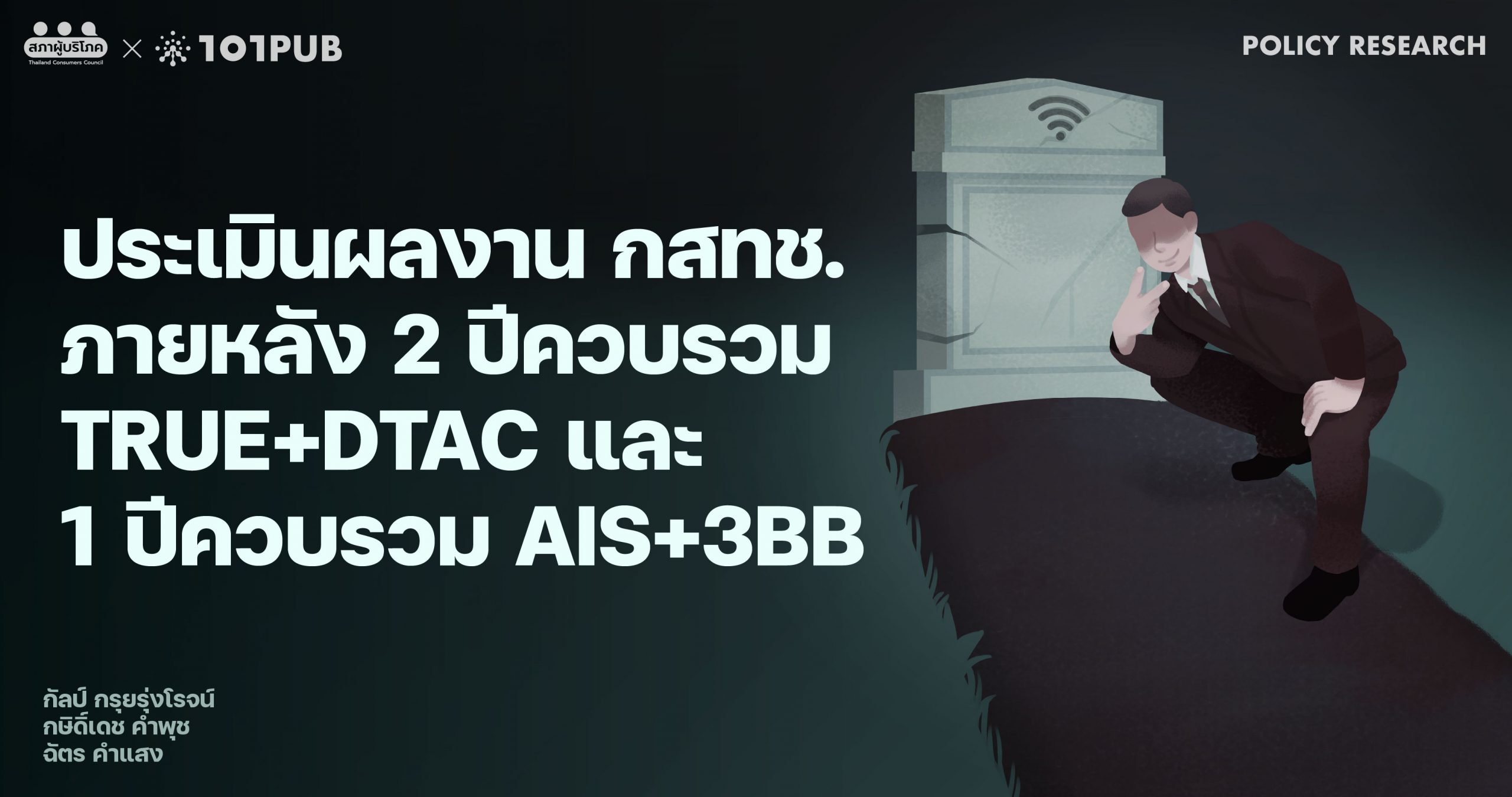BANGKOK — Two of Thailand’s top telecom companies were absent at a Thursday regulatory hearing on their planned merger, which if approved would create the country’s largest operator by subscribers.
True Corp. and Total Access Communication (DTAC) missed the hearing despite confirming on Wednesday evening that they would present plans to safeguard consumer welfare, said telecoms commissioner Prawit Leesatapornwongsa.
Prawit reiterated several times that the National Broadcasting and Telecommunications Board has yet to decide whether to allow the merger.
“I have never told anyone whether we agree or disagree, but it has to be participatory from all parties and transparent,” the commissioner said, inviting public comment on the merger through May 29. “We are only in the information collection stage,” he added.
Even without the green light from regulators, True and DTAC proceeded with shareholder meetings to approve their merger plans last month. The two companies say the combined entity will be better able to compete in Thailand’s digital transformation, and will allocate capital and spectrum to invest in 5G networks and local technology startups.
But that investment could be made by the two companies even without a merger, according to expert testimony on Thursday.
“There are other business decisions they could make,” said Somkiat Tangkitvanich, president of Thailand Development Research Institute, a public policy think tank.
DTAC, Somkiat suggested, could sell its assets and spectrum to a new player instead of True if its parent company, Telenor of Norway, wanted to exit the Thai market. With 19 million subscribers, DTAC is a distant third to True at 32 million and AIS at 40.1 million.
Missing representatives from True and DTAC, the four-hour hearing was dominated by opposition voices, including consumer protection groups and competitors Advanced Info Service and the state-owned National Telecom.
“Our industry has developed thanks to competition, quite fierce competition from three players,” said Saran Phaloprakarn, head of business development at AIS.
Thailand ranks third in the world in terms of broadband internet speeds and 54th for mobile with nearly nationwide 5G coverage, according to Speedtest.
Saran warned that the merger would create a duopoly, with potential new entrants unable to amass the capitalization and spectrum licenses of AIS and the new True-DTAC entity.
“We believe that the merger will change the telecommunications landscape permanently,” he said. “It increases the risk that we will decline in terms of telecommunications development in Thailand.”
Analysts at the hearing said the merger would not yield significant savings for True and DTAC that could be reinvested in improving the network. Combined operating costs would decrease by only 2%, while monthly service costs for consumers would increase by 15 to 50 baht per line, said Chatra Kamseang of The101.World, a media research agency.
Commissioner Prawit took pains to emphasize the preliminary nature of the hearings, as the industry has viewed the NBTC as a rubber-stamp body for the True-DTAC merger. True’s owner, Charoen Pokphand Group, was allowed with conditions to acquire the Thai and Malaysian operations of British grocer Tesco in 2020.
Wisarut Krutgaiwal, secretary of the parliamentary committee on consumer protection, said the monopoly gained by CP cost the survival of small retail businesses. CP has held over 70% of Thailand’s grocery market share since acquiring Tesco.
“They’re forcing us to use the service of two players,” Wisarut said of the True-DTAC merger at the Thursday hearing.
“The first consideration should be the benefit to the people,” he added.
เผยแพร่ครั้งแรก : เว็บไซต์ Nikkei Asia. Thailand’s True and DTAC skip regulatory hearing on merger. วันที่ 26 พฤษภาคม 2565




